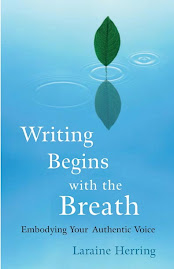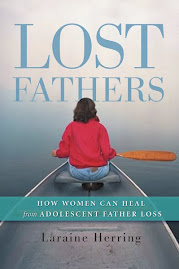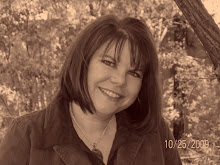
These past few days have felt like one continuous summer day. It's been so sunny and bright (though fortunately not crazy hot), and of course, it was just the longest day of the year. But that's not why. Since returning from Omega, I've been able to really put the "teacher" hat away and sink, sink, sink into words.
I have written for practically three days straight, sleeping very little, getting up, doing my practice, and then going right to the computer. In bed, I push the edges of the sheets away with my feet and scream. This is the birth. I love every timeless part of it. I have been carrying this book with me since I was 7 years old. Each day I write, I lose something. Each day I write, there is more space in my belly and my spine. Each day I write, my shoulder releases. I feel like I am literally losing pounds by finally getting this book done. I should have a full on draft ready for fine tuning in just a few more days. (Thank you to whoever established summer break!)
It is always the right time, though. The work had to germinate through adolescence and gigantic 20-something mistakes. It had to gather steam during years of different types of therapy and projects and education. It had to push against me from the inside out until I paid attention to unrecognizable aches and pains in parts of my belly I didn't know I had.
I have danced with this book, run from this book, analyzed this book -- practically any other verb you can think of I've done with this book. This is the end of it, and I know it this time because I feel the space and the freedom. I know it because I am crying and crying and crying and laughing and laughing and laughing. He asked me to write his story for him when I was seventeen. I hadn't known how to do it before this very week. I think I honestly didn't want to give him to anyone else. I had to first be able to stand in the space between him and me and find my own feet, my own spine, my own healthy, strong body unencumbered by his illness and his sadness.
The title of this blog is called Closing Time because of the Leonard Cohen song. The song sums up perfectly the place in between where I have felt I've been for 33 years.(If you can't hear Leonard's voice when you read the lyrics, you're missing a piece of that amazing angst) :-)
"Closing Time"
(c) Leonard Cohen
Ah we're drinking and we're dancing
and the band is really happening
and the Johnny Walker wisdom running high
And my very sweet companion
she's the Angel of Compassion
she's rubbing half the world against her thigh
And every drinker every dancer
lifts a happy face to thank her
the fiddler fiddles something so sublime
all the women tear their blouses off
and the men they dance on the polka-dots
and it's partner found, it's partner lost
and it's hell to pay when the fiddler stops:
it's CLOSING TIME
Yeah the women tear their blouses off
and the men they dance on the polka-dots
and it's partner found, it's partner lost
and it's hell to pay when the fiddler stops:
it's CLOSING TIME
Ah we're lonely, we're romantic
and the cider's laced with acid
and the Holy Spirit's crying, "Where's the beef?"
And the moon is swimming naked
and the summer night is fragrant
with a mighty expectation of relief
So we struggle and we stagger
down the snakes and up the ladder
to the tower where the blessed hours chime
and I swear it happened just like this:
a sigh, a cry, a hungry kiss
the Gates of Love they budged an inch
I can't say much has happened since
but CLOSING TIME
I swear it happened just like this:
a sigh, a cry, a hungry kiss
the Gates of Love they budged an inch
I can't say much has happened since
CLOSING TIME
I loved you for your beauty
but that doesn't make a fool of me:
you were in it for your beauty too
and I loved you for your body
there's a voice that sounds like God to me
declaring, declaring, declaring that your body's really you
And I loved you when our love was blessed
and I love you now there's nothing left
but sorrow and a sense of overtime
and I missed you since the place got wrecked
And I just don't care what happens next
looks like freedom but it feels like death
it's something in between, I guess
it's CLOSING TIME
Yeah I missed you since the place got wrecked
By the winds of change and the weeds of sex
looks like freedom but it feels like death
it's something in between, I guess
it's CLOSING TIME
Yeah we're drinking and we're dancing
but there's nothing really happening
and the place is dead as Heaven on a Saturday night
And my very close companion
gets me fumbling gets me laughing
she's a hundred but she's wearing
something tight
and I lift my glass to the Awful Truth
which you can't reveal to the Ears of Youth
except to say it isn't worth a dime
And the whole damn place goes crazy twice
and it's once for the devil and once for Christ
but the Boss don't like these dizzy heights
we're busted in the blinding lights,
busted in the blinding lights
of CLOSING TIME
The whole damn place goes crazy twice
and it's once for the devil and once for Christ
but the Boss don't like these dizzy heights
we're busted in the blinding lights,
busted in the blinding lights
of CLOSING TIME
Oh the women tear their blouses off
and the men they dance on the polka-dots
It's CLOSING TIME
And it's partner found, it's partner lost
and it's hell to pay when the fiddler stops
It's CLOSING TIME
I swear it happened just like this:
a sigh, a cry, a hungry kiss
It's CLOSING TIME
The Gates of Love they budged an inch
I can't say much has happened since
But CLOSING TIME
I loved you when our love was blessed
I love you now there's nothing left
But CLOSING TIME
I miss you since the place got wrecked
By the winds of change and the weeds of sex.
[ www.azlyrics.com ]
So I made a
Wordle of the final scene of the memoir. (The lovely image you see at the top of the blog!)
Here's the final scene: (Skeleton Woman, Lillian, Gabriel, Hannah, Frank, Claire, Helen, Zoe, Necahual are all characters in my novels)
Chapter 23
Characters as Teachers
The moon waxes outside my bedroom window. Thumb Butte mountain is silhouetted in grays. Tonight there are bats and coyotes and tiny biting bugs. I smell javelina, though I haven’t seen one rutting around the scrub brush in quite some time. I’m awake at my usual time – 3:45 a.m. I watch and listen. Sometimes I wake up and just use the bathroom. Sometimes I wake up and pull whichever cat is closer under the covers with me. I can usually get away with that for a few minutes before she gets sick of me and jumps away. But other times, I wake up because something has shown up – a solution to a scene in a novel – a new book idea – a sadness that seems real only at 3:45 a.m.
“Hey,” says Lillian, one of my characters. “Don’t let us keep you awake.” She presses her hand to my forehead, sinking me back onto the pillow. I burrow deeper under the down.
“Wake up!” It’s Hannah, another character. “I’ve still got more to say to you.”
“Shut up.” This one’s Zöe, the one who’s way too much like me. “You had your turn. It’s my turn now.”
“Ain’t none of y’all’s turn,” says Frank, from my newest novel. “It’s my time now. I’m still stuck in Chinatown.”
I could be asleep, but I’m not. The bed is heavy with all of them here. More are here than choose to speak. There are always more of them than are speaking. Always more.
Two black swans slide across a pond I can’t identify. I think of Freedom Park in North Carolina where we used to go when I was growing up to feed the ducks and crows. I wonder what those black swans are about. Janis Joplin cracks her heart open in Golden Gate Park in 1967 and twenty-year-old Helen feels the blood thumping in her own heart. In her belly, a baby who won’t live to hear Janis Joplin and make up her own mind about the radical nature of women. Outside of the park, Benjamin, another ghost, circles over Frank’s head in Chinatown. The ghosts of my ghosts.
Skeleton Woman dances on the dresser, her reflection in the mirror with the moon enough to make me so eternally grateful for this life. She nods at me, her jaw a constant grin.
Lillian, Hannah, Jay, Roberta and Gabriel – you helped me heal my relationship with my grandmother, even though she was dead long before you stopped by.
Zöe, Necahual, Fire Wolf, Bob and David – you helped me forgive my mother for being the one to survive.
Helen, Claire, Frank, Ellie and Benjamin – we’re still in contract negotiations. I don’t know yet what your gifts are.
A bat flies too close to the sliding glass door. The cats stiffen. They want to be outside hunting, but I don’t let them. I know they’ll become the hunted and I can’t bear that. Still, they clack their jaws and slash their tails through the air, barely missing the ghosts.
***
You don’t know, really, what each moment leads to. You don’t know what the threads are weaving. You just follow the needle and admire each color as it blooms. You stay as long as you can – you hover over your daughters, your wife. You wake them up when the air conditioning unit catches fire the month after you are gone. You ride trains in your daughter’s dreams. You leave a message for her on her answering machine a year after you died. You visit your mother and father, though you cannot speak to them, and if you could, you still don’t know what you would say.
You listen while you float and all the words you never spoke bubble up and dissolve into the air you no longer breathe. As each sentence flashes and vanishes, so does a fragment of you. As each piece of you becomes glitter, you move farther and farther away.
Your daughter’s pen is filled with the ink of your experience. She has waited for you to die so she can move. You have waited for her to let you go. You have work to do now. Your life, all your lives, have become the sparkle of rainbow. She writes with purple ink. With green. With gold. She writes you farther away; each word pushes you closer to your new home.
You see the crowd gathered in her bedroom. You didn’t see them before, but you see them now. You want to talk to her about them, but you know your role is finished. You showed her how to see them. It is up to her to write them. ***
Dear Daddy,
Summer’s here. I’m looking out the open window at the Wild Iris Coffee house. There’s water in Granite Creek. My shoulder doesn’t hurt. My fingers thrum with words. Good journey, Daddy. The words are fire, water, air and earth. The words are my body. Our bodies.
I am breathing still.
Still, I am breathing.
What a wondrous gift indeed, to be one of the haunted.
***
Skeleton Woman’s perpetual smile lights up the bedroom. The cats sleep in fluffy cat piles. The black swans slide across the surface of the lake. I close my eyes to dream a story.
Lillian sighs, her old hands gnarled as the tree branch where Gabriel hung. “Best let her get some sleep. It’ll be morning soon enough.”
Gabriel sings, his deep bass vibrating my sternum. “Swing Lo, Sweet Chariot…”
Helen grabs her Southern Comfort, touches Frank’s hand. “Come now, she’ll get you out of Chinatown when she wakes up.”
I sink into the feather pillow. Skeleton Woman sits next to me, then snuggles deep under the covers. “I’m here, love.”
My bones sing.
You don’t know how perfect the world is until you float above it, your own smile glistening in the night, the waxing moon, the constellations; you have become the eternity you have been seeking, and all you can do is shower the earth with gratitude for your own small, forty-six year piece of the whole. “Comin’ for to carry me home…”
The handsome white horseman looks more than a little like Elvis. He opens the door to the chariot, bows low. “It’s no big thing,” he says to you. “Just the space between one breath and the next.” A pause, a comma,
It’s no big thing. The moon falls behind Thumb Butte. The moment between moonset and sunrise is electric with life. I inhale and exhale, sleep the closest thing to death for now. It’s no big thing. The pause, the comma,
You step into the chariot. Elvis closes the door behind you. “Hold on. The ride gets bumpy sometimes.” You hold on to the safety loop for only a moment before you let it go, knowing you want to feel every moment of whatever is next. Your legs have no polio virus. Your heart is not blocked. Only a pause. No big thing. Skeleton Woman and I wait on the precipice.
Until we meet again, Until then,
Dear Daddy, I love you. Bye-bye, Daddy,
Bye-bye sugar. I am in my yellow swing in the backyard of our house. It is 1969. I am full of the joy of words. B-R-E-E-Z-E. The wind’s breath holds me up, flying in the space between your arms and the rest of my life.















